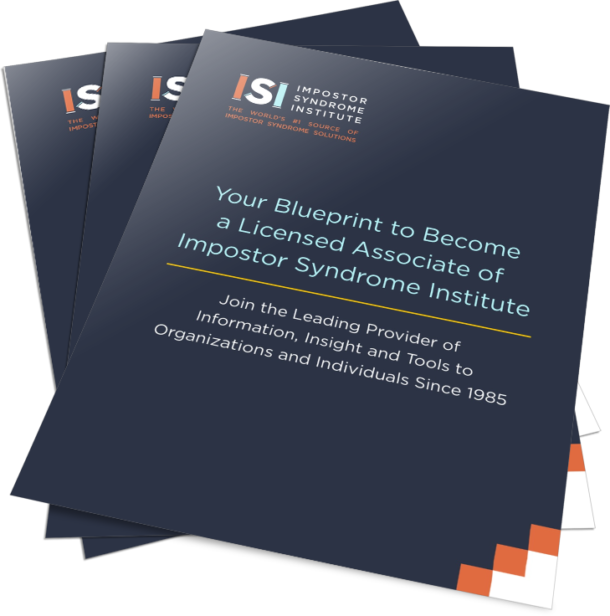When asked in an interview if he ever felt like an impostor, Saturday Night Live writer and comedian John Mulaney replied:
“Oh yeah. Steve Higgins [a producer for SNL] asked me on one of my first one or two days: ‘You feel like a fraud?’ And I said yes, and he said, ‘Good. ’Cause if you didn’t, you’d be an asshole.’ And it’s really true! If you walk in at 25 and you’re like, ‘I got this,’ you’d be insufferable. A couple people in comedy have pulled that off, but I think embracing how terrified you are is the only way to begin there.”
This is not the first time I’ve heard impostor syndrome framed as a positive… as something we should “embrace.” One even described it as her career “superpower.”
I understand the thinking because over the three decades I’ve been working on this topic, I’ve said much the same.
In fact, I dedicated a couple of paragraphs in my book to some of the adaptive elements of impostor syndrome.
Now I know that framing it as a positive, is yet one more aspect of impostor syndrome we must rethink.
That’s because the advice to embrace our impostor feelings is based on a false narrative.
A narrative that says you have two choices.
You can continue to feel like an impostor with all the negative emotional, physical, and financial consequences that go along with it — OR you can be an egocentric jerk.
To be sure, there are plenty of people who are the proverbial “smartest guy in the room.” All the more so in high places.
But if you’ve spent your adult life seeing yourself as undeserving of your success, even if your impostor syndrome magically disappeared tomorrow, the odds of you becoming that person are pretty much zip.
So, what if you knew that you didn’t have to deal with all the downsides of impostor syndrome in order to be humble?
Put another way, what if you knew it was possible to ditch impostor syndrome and still have healthy humility, even well-deserved pride in your work?
What if you knew that it’s entirely possible to walk into a new situation (new job, promotion, and yes even SNL) and feel like “I’ve ‘got this’” — not out of arrogance — but because you understand, as non-impostors do, that it’s okay to be in the midst of a learning curve?
In fact, what if you knew that you can be scared out of your ever-lovin’ mind, and still not feel like an impostor because you understand, as non-impostors do, that fear is a normal response to the unknown?
What if you knew, as non-impostors do, that it’s entirely possible to ask for help… or not know the answer… or struggle to master something… or make a mistake… or fall flat on your face… and not experience shame that “impostors” do?
In other words, what if rather than embrace your impostor syndrome, you learned instead to think and act like someone who embraces a healthy response to competence, failure, criticism, and fear?
The downsides of feeling like a fraud far outweigh the good. And the consequences are costly — not only to you but to your organization or business as well.
Rather than embrace a pattern that comes with such emotional, physical, and financial baggage, I invite you to embrace non-impostor thinking instead.
Because the bottom line is this:
[bctt tweet=”If you want to stop feeling like an impostor, you have to stop thinking like one.” username=”valerieyoung”]
You are welcome to reprint this post with the bio below.





